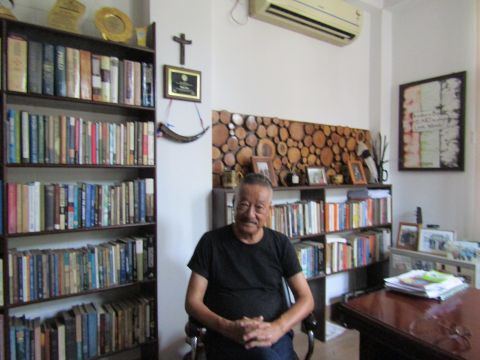A Man for Peace: Reverend Dr Wati Aier
"I think we were too fast with it all. Perhaps it was World War II that shaped the Naga soul. People come of age or in the process of coming of age, I think, in many ways we have been too idealistic. Instead of trying to work towards national construction, we were caught up in idealistic nationalism and I think traces of that idealistic mission still linger on today especially among the older generations... but the younger minds are beginning to be very critical and analytical at the same time, so I wish that the Naga movement began today. But it’s never too late because after all, what is nationalism? I think the realization that the Nagas need to preserve their identity that is what it is. I am very passionate about my history in my own way, in a relative term, my history is very unique. Assamese history is unique too. Others’ history is equally unique, so our uniqueness cannot be at the expense of others, that’s what I keep on thinking. So the whole idea, you know, I guess the entire North-East…I was talking with Sanjoy Hazarika sometime back … I was saying, 'you know, perhaps the entire North-East can be a paradigm of a new kind of political history, a political model and a whole consciousness. You cannot define our, you know, language, Nagas cannot be dictated as a language, we need to construct things our way….that’s my take…perhaps it’s more idealistic.'"
Rev Dr Wati Aier is the Convener of the Forum for Naga Reconciliation.
Excerpted from a conversation with Dr. Rakhee Kalita Moral
Photograph: Dr Rakhee Kalita Moral
Nagaland
India
